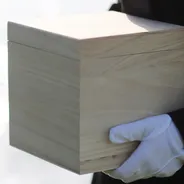US President Donald Trump has declared a national emergency in order to secure funding for his border wall, in a move that sent shockwaves around the world.
After many attempts on the president's side to secure funding from the wall - at one point shutting down the government for a record 35 days in order to get his way - President Trump has announced his intention to circumvent Congress to get funding for his border wall.

After signing a border and security plan into law that would hopefully keep the government running until the end of September, Donald Trump addressed the nation at the White House Rose Garden, outlining his intention to build a wall over Mexico - one of his key campaign promises during the 2016 election.
"I'm going to be signing a national emergency, and it's been signed many times before, by many presidents. It's rarely been a problem ... nobody cared," Trump said on Friday. "They say walls don't work. Walls work 100% of the time."
In making his announcement, Trump refuted the idea that he couldn't work with Congress in order to get funding for his wall, citing the $1.4 billion he received for barrier construction. Trump claimed that he simply wanted his wall to be built faster.

He also said that expected legal action to be taken against him for signing the executive order that would allow the President to go around Congress for funding. "I expect to be sued. I shouldn't be sued," Trump added in what appeared to be unscripted remarks, and he has already been proven right.
Several members of Congress on both sides of the political divide have expressed concern over the constitutional legitimacy of Trump's national emergency.
House Speaker Nancy Pelosi and Senate Minority Leader Chuck Schumer have already outlined their intention to take the declaration to the Supreme Court, arguing that not even the President is above the Constitution or the Law.

"The President's emergency declaration, if unchecked, would fundamentally alter the balance of powers, inconsistent with our Founders' vision. ... The President is not above the law. The Congress cannot let the President shred the Constitution.
Meanwhile, John Mulvaney, the acting White House chief of staff, played down worries that Trump's declaration could set a worrying precedent for future presidencies, arguing that this has been done many times before, by both Republicans and Democrats.
"There's been some concern in the media about whether or not this creates a dangerous precedent. It actually creates zero precedent. This is authority given to the president in the law already. It's not as if he just didn't get what he wanted so he's waving a magic wand and taking a bunch of money."

However, not all Republicans are fully behind the national emergency. Speaking on Thursday before Trump made his announcement, Mac Thornberry of Texas, the ranking Republican on the House Armed Services Committee, worried that funding the wall would leave America vulnerable in other areas.
"Doing so [declaring a national emergency to build the wall] would have detrimental consequences for our troops as military infrastructure was one of the accounts most deprived during the Obama-era defense cuts. And it would undercut one of the most significant accomplishments of the last two years — beginning to repair and rebuild our military. I hope that the President will pursue other options."
Several institutions are already preparing legal action Trump following the declaration. The Citizens for Responsibility and Ethics in Washington (CREW) have already filed a lawsuit, while the American Civil Liberties Union (ACLU) have already announced their intention to do the same.








